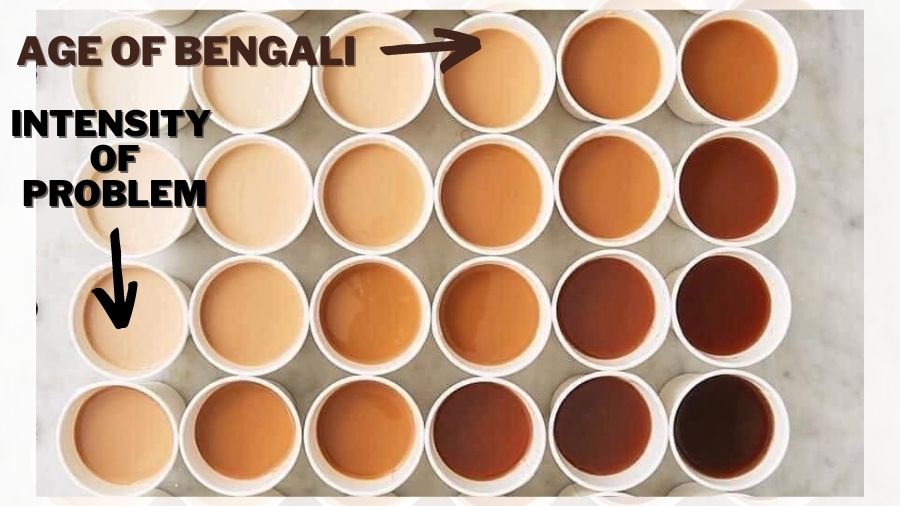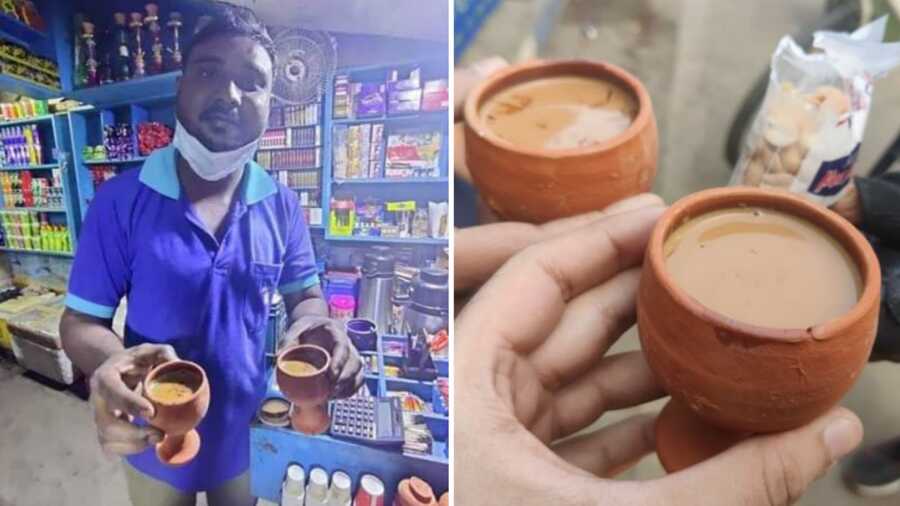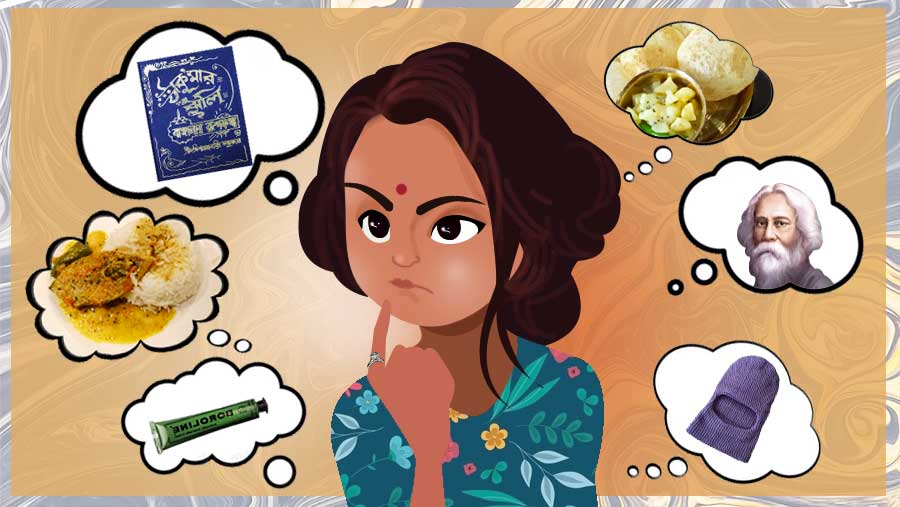A lot can happen over coffee, sure, but for the Bangali the lot usually happens over tea. The cha from the local tea shop, the beloved para’r cha-er dokan, has a significant place in the life of a Bengali person and has been a companion to many big and small moments. From the exasperated “Uff! Ar parchi na,” to the conspiratory “Janish to…” and everything in between, the cha-er dokan has witnessed it all. Maybe it’s the fact that the tea is served in a quintessential bhnar or maybe it is a simple cultural quirk, the tea stall and its adda is a local gem.

Celebrating these local gems in every para, here are some likely scenarios where you will find a Bengali heading for a cup (or bhnar) of tea. Read, laugh and say adios to the mid-week blues.
The great Bengali debate: ‘chaer bhanrey torko’
Political debate and the Bengali, especially one with a cup of tea, go hand in hand. Who will be the PM — of your country or any other — to who will get the chair at the para party office, serious matters are debated at the tea stall. It usually begins with rajneeti, but then can evolve to include arthoneeti (economy), cinema, food, the weather and almost anything else you can think of.
Trip to ‘bajar’ and tips on inflation
With the rising rates of inflation, every trip to the local market gives enough reason to trip and fall on the face. Therefore every visit to the bajar needs a troubleshooting session and a management discussion on inflation at the tea stall.
Domestic woes and ‘duronto’ children
Now, where would an weary Bangali go to escape a jhogra with the bou or the antics of unruly children? The cha-er dokan, of course. There’s nothing better than a good rant over a cuppa with like-suffering individuals. It could, in fact, feel almost as good as smashing it in the squash court (there’s a joke about lemons and lemonade there somewhere).

First-crushes and Bollywood meet-cute
For generations, from grandparents to kids, the para tea stall has been a strategic point from where to catch that one coveted glimpse of your person-next-door crush. While the butterflies flutter, warring with possible disappointment of having not gotten to see them just once, the tea shop makes the perfect cover without triggering suspicion in local kakus and kakimas. They’d probably make a comment about lekha-pora having gone down the drain, but hearing that from the Bangali parents has given us a thick skin anyway.
The OG date and adda
Long before cafes came into existence, the cha-er dokans were the OG date destination. Enveloped in the scent of a cup of steaming tea (and the smell of a kerosene stove), sharing sweet projapoti biscuits and one shingara was the Kolkata love language. Whispering sweet-nothings to making up after a squabble, the cha-er dokan has seen the magic unfold. Thankfully, this one detail about romancing in the city still remains.
Then there’s the adda. Getting together with friends for an adda is almost as important as oxygen and food to a Bangali, and there is no better spot than the tea stall — preferably with a cigarette shop nearby. No matter how strong the parallel-track love affair with quaint cafes, ice teas and lattes, nothing replaces this.
Migraine, indigestion and everything in between
Body, mind, heart and soul — one cup of gorom cha has proved to be the cure-all for the Bengali for generations now. Sure, we make a mean cuppa at home, but this cure is not the tea that comes from our home kitchen. This is part of a long-standing love affair with the para’r cha-er dokan and its bhnar-er cha (usually accompanied by a cigarette).
*Cigarette smoking is injurious to health.

